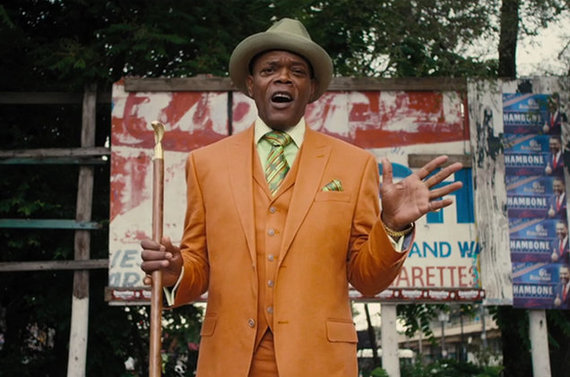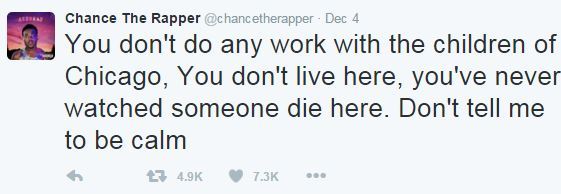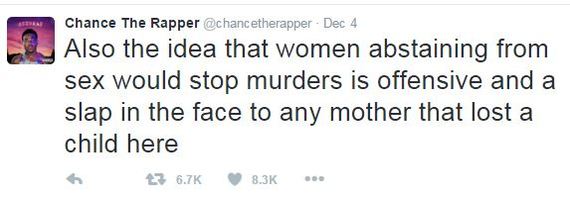
On the December 4, the date Spike Lee’s Chi-Raq was due to be released, Chance The Rapper took to Twitter to voice his lack of support for the film. And as a young, popular artist who has received accolades from the city for his work with inner-city Chicago youth, his voice rings loudly. He went on to post follow up tweets expressing reasons he is not in support of the movie and what gives him the authority to have such an opinion. Whether the general public is in support of Chance The Rapper’s comments, one aspect that shines through in his comments is that he has been affected by…
On the December 4, the date Spike Lee’s Chi-Raq was due to be released, Chance The Rapper took to Twitter to voice his lack of support for the film.
And as a young, popular artist who has received accolades from the city for his work with inner-city Chicago youth, his voice rings loudly. He went on to post follow up tweets expressing reasons he is not in support of the movie and what gives him the authority to have such an opinion.
Whether the general public is in support of Chance The Rapper’s comments, one aspect that shines through in his comments is that he has been affected by Chicago’s gun violence and that there is a strong desire to have Chicago’s “true story” come to light–a point that many assert when discrediting the content.
And my question is what is that?
As Spike Lee exposes in a trailer before the release date, he chose to approach the film using satire, “a way of using humor to show that someone or something is foolish, weak, bad, and humor that shows the weaknesses or bad qualities of a person, government, and society,” according to the Merriam Webster Dictionary.
Even those who disagree with Spike Lee’s approach confirm the film’s satirical qualities, but it seems that the exaggerations make people uncomfortable. Historically, satire has done such. However, critics of the film yearn for a true representation of Chicago–a picture much more real than Chi-Raq’s approach. But is the real representation going to be any easier to digest?
In reality, as of December 9, 2015, there have been 2804 gunshot victims in Chicago, protests are erupting against the shooting of Laquan McDonald, babies are being targeted and killed, women like aspiring model, Kalyn Pryor are being gunned down as innocent bystanders, and Chicago Public Schools have been in the news for corruption.
No one can argue that Chicago offers diverse experiences and one fictional representation is not enough to capture the complexities of the city. Perhaps, even if the film is not a hit among the general public, the discussion sparked from it will ignite further action and effort in those that love Chicago.
It is understandable why an artist like Chicago’s Chance The Rapper voiced concerns about a movie based in his hometown, but when outrage over a fictional movie outweighs outrage over the horrific gun violence happening all too often in Chicago, the question is, what are we really angry about? Is there a mixture of jumbled up frustrations all being misdirected at Spike Lee, or is this really all about Lee’s lack of Chicago “street cred” and inability to capture a true Chicago experience in a fictional film? What is this truth critics of Chi-Raq speak of?
— This feed and its contents are the property of The Huffington Post, and use is subject to our terms. It may be used for personal consumption, but may not be distributed on a website.
Link to article:
If Spike Lee’s Chi-Raq is Not Chicago’s True Story, What is?
























